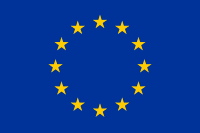Have you discovered The Alexandria Project?
 While the decade long debate in the European Union over the definition of “open standards” has been well-publicized, it may come as a surprise to some that EU member nations are required to utilize a second standards filter in public procurement as well.
While the decade long debate in the European Union over the definition of “open standards” has been well-publicized, it may come as a surprise to some that EU member nations are required to utilize a second standards filter in public procurement as well. That filter relates to whether a standard has been developed by a “formal” standard setting organization (SSO). In other words, by either an EU SSO, such as CEN/CENELEC or ETSI, or by one of the global “Big Is” (ISO, IEC or ITU). If it doesn’t, then it’s supposed to be off limits - until now.
That filter has roots in a sixty year standards-based quest to benefit European trade, both within the EU and internationally. Historically, this goal was met by seeking to develop EU-wide standards that member states would be required to adopt, thereby replacing the national standards they had long used to keep the goods of neighboring nations out of their own markets. At the same time, these standards would be designed to facilitate EU goods internationally.
Isn’t it time you read:
The Alexandria Project?
a Tale of Treachery and Technology
|
Remarkably accurate while consistently spellbinding: I ran across a reference to this book at a blog unrelated to the author, and after reading one chapter, bought the book Great thriller: In the spirit of Vincent Flynn and Tom Clancy, this cyber-security thriller is a great read. Compelling characters, great detail and an an unsettlingly plausible scenario add up to a real page-turner. Delightfully unpredictable! Updegrove has managed what many attempt but few can execute: a plot that is both credible and surprising….A great read – I can’t wait for the next one! Strong characters and compelling plot: I read a lot of novels and this is a very good one. The characters are believable and engaging and the plot is compelling with several clever twists along the way….Highly recommended Excellent and accessible techno-thriller: Updegrove…clearly knows the subject matter inside and out, but is too self-assured and smooth a writer to hide behind that insider’s knowledge….I look forward to Updegrove’s next book with great anticipation. Great Read: This is a very well written, highly engaging story. The scary thing about it is that the entire plot is far too possible to come to life. Fantastic! The Alexandria Project is a gripping novel of intrigue and suspense. The characters may be fictional, but we all know their real-life equivalents. The storyline may be fiction – but maybe not. Read these and more 5 Star reviews at Amazon |
The only part that’s fictional is that it hasn’t happened yet
Available Now for $2.99 or less
Buy at Amazon Buy at iTunes Store Buy at Barnes & Noble |